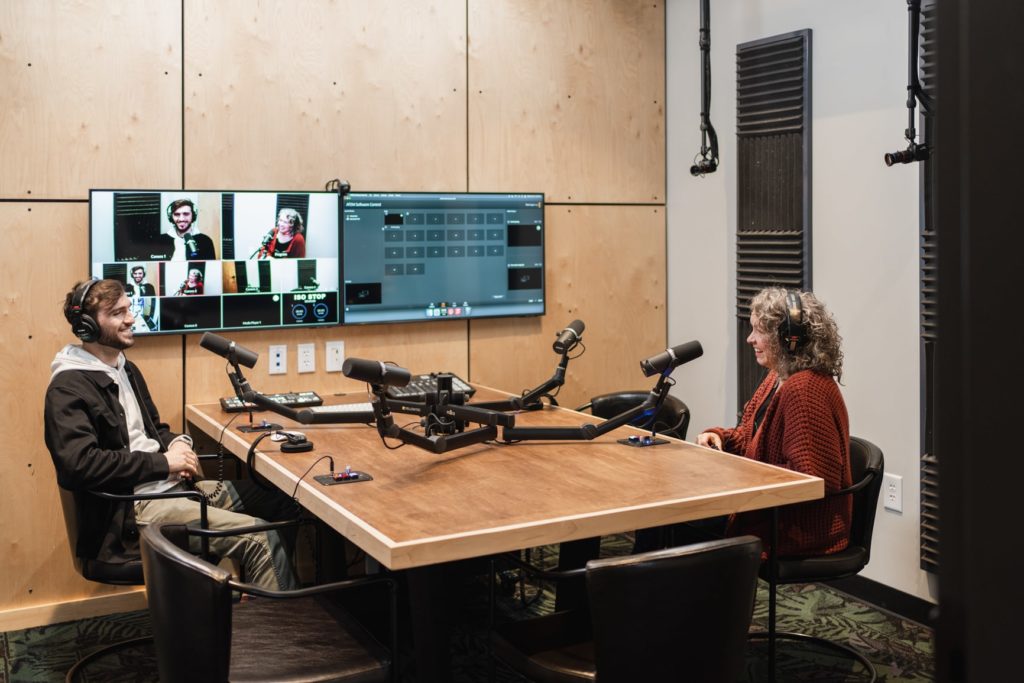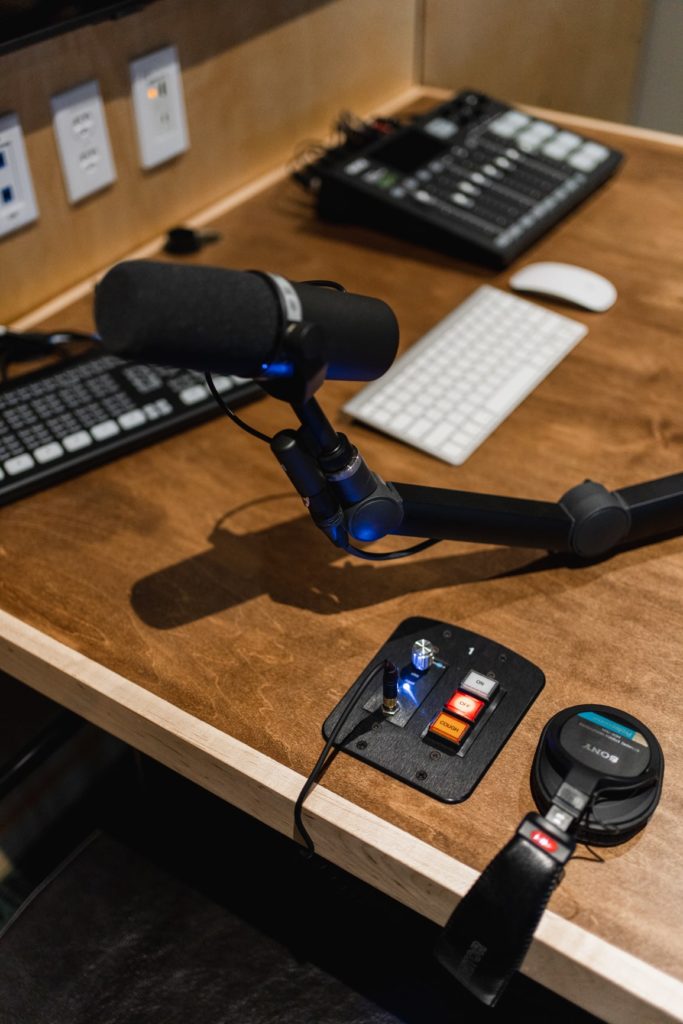What Makes a Good Podcast: Essential Elements for Success

A good podcast is more than just an audio file—it’s an experience that resonates with listeners, keeps them engaged, and provides value in every episode. At its core, a successful podcast combines compelling content, high-quality production, and consistent engagement with its audience. Whether you’re discussing niche subjects, sharing personal stories, or interviewing industry experts, the essence of a great podcast lies in its ability to connect with listeners on a meaningful level.
With so many podcasts vying for attention, creating a show that stands out requires careful planning, the right equipment, and a deep understanding of what your audience wants. Whether you’re a seasoned podcaster or recording for the first time, these insights will help you elevate your podcast and build a loyal listener base.
Defining a Good Podcast
The foundation of any good podcast is the quality and relevance of its content. Choosing a specific topic that aligns with the interests and needs of your target audience is crucial. Whether you’re focusing on business insights, storytelling, or entertainment, your content should be well-researched, informative, and engaging. A clear message is essential because it helps podcast listeners understand the purpose of your show and what they can expect from each episode. Your expertise on the subject matter can further enhance the credibility of your podcast, making it a reliable source of information or entertainment for your listeners.
Incorporating personal stories and real-life examples can make your podcast more relatable and engaging. Listeners are often drawn to content that feels authentic and personal, so sharing experiences or anecdotes can create a deeper connection. This approach not only adds value to your podcast but also makes it more memorable, encouraging listeners to return for more.
Audience Engagement
Engagement is a key factor in building a successful podcast. Creating an interactive and conversational tone can help keep your listeners invested in your content. Encouraging listener questions and feedback can also foster a sense of community around your podcast, making your audience feel like they’re part of the conversation.
Leveraging social media is another effective way to engage with your audience. By promoting your episodes, sharing behind-the-scenes content, and responding to listener comments, you can build a wider audience and keep your existing listeners engaged between episodes. Balancing content that appeals to both new listeners and loyal followers is crucial for maintaining and growing your podcast audience.

Audio Quality
One of the most critical elements of a good podcast is its audio quality. Listeners expect clear, crisp sound without distractions, so recording in a quiet place is essential to avoid background noise that can detract from the listening experience. Investing in the right equipment is equally important; high-quality microphones, audio interfaces, and soundproofing can make a significant difference in how professional your podcast sounds. Poor audio quality can quickly turn listeners away, even if your content is top-notch.
The right setup includes a quality microphone that suits your voice and recording environment, as well as an audio interface that can convert your analog signals into digital ones with minimal latency and distortion. Additionally, using pop filters and shock mounts can help reduce unwanted noises, such as plosive sounds and vibrations. Soundproofing your recording space by using foam panels or blankets can further reduce background noise, creating a more controlled and professional recording environment.
Release Schedule
Consistency is a cornerstone of a successful podcast. Maintaining a regular release schedule helps build a routine for your listeners and establishes your podcast as a reliable source of content. Whether you release episodes weekly, bi-weekly, or monthly, sticking to a schedule helps keep your podcast audience engaged and anticipating your next episode. Irregular releases can lead to a loss of interest, causing even loyal listeners to drift away.
Planning your content in advance is key to ensuring consistency. Developing a content calendar that outlines topics and guests and records dates can help you stay on track. This approach allows you to manage your time effectively and avoid the last-minute rush that could compromise the quality of your episodes.
Role of the Podcast Host
The role of the podcast host is pivotal in creating a successful show. As the host, you are not just the voice of the podcast but also the guide who steers the conversation and ensures that the content remains engaging and relevant to your target audience. A good host should be well-prepared, knowledgeable about the subject matter, and able to keep the discussion on track while allowing for natural and spontaneous moments.
The host must also manage the dynamics between different guests and maintain the flow of the conversation. Whether you’re hosting an interview podcast or a solo show, your ability to engage your guests and ask insightful questions will determine the quality of the content. A great host knows when to let the guests shine and when to step in to guide the discussion. This balance is crucial in keeping your listeners engaged and ensuring that the podcast delivers on its promise.
Selecting and Managing Guests
Choosing the right podcast guest can significantly enhance the value of your podcast episode. A well-selected guest brings unique perspectives, expertise, and stories that can enrich your content and attract a broader podcast audience. When selecting guests, consider how their backgrounds and experiences align with the theme of your podcast and the interests of your listeners.
Managing guests during the recording process is equally important. It’s essential to brief them on the subject matter and the structure of the conversation before the recording starts. This preparation helps them feel comfortable and allows the conversation to flow more naturally. During the recording process, be mindful of the time, ensure that each guest has the opportunity to share their insights, and keep the discussion on track without being overly rigid.
Finally, leveraging past and new episodes to showcase a variety of guests can help maintain interest and encourage new listeners to explore your podcast. By featuring different voices and perspectives, you can keep your content fresh and relevant, which is key to building and sustaining a loyal listener base.
Editing Process
Once recording is complete, the editing process becomes vital for refining your podcast. Editing allows you to remove any errors, adjust sound levels, and add any necessary effects or music. This step is crucial in ensuring that the final product is polished and professional. Even seasoned podcasters may encounter unexpected hiccups during recording, but a thorough editing process can help mitigate these issues, resulting in a clean, engaging final product. Editing software like Adobe Audition, Audacity, or GarageBand can be used to enhance your podcast by adjusting levels, removing background noise, and adding transitions or sound effects.
The Value of a Professional Podcast Studio
High-quality content needs equally high-quality production. A professional podcast studio provides the advanced technology and controlled environment necessary to produce clear, crisp audio and video, free from distractions and background noise. With the right equipment—like top-tier microphones, audio mixers, and cameras—your podcast can sound polished and professional, meeting the expectations of your listeners.
Roam’s podcast studios in Trilith and Grandscape offer everything you need for professional podcast production. With features like Pro Podcast consoles, high-quality microphones, and soundproofing, these studios ensure your recordings are top-notch. The intuitive setup and flexible booking make it easy to focus on content creation, while on-site technical support helps you handle any issues that arise.
Recording in a professional studio like Roam’s can elevate your podcast, ensuring it stands out in a competitive market and attracts a loyal audience.
